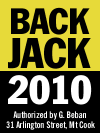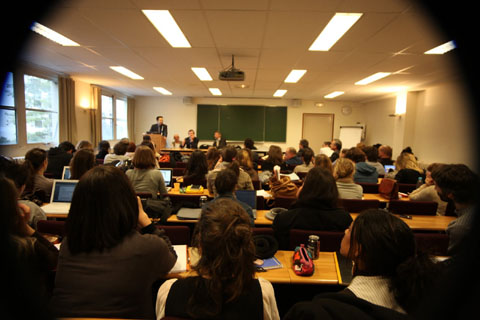
Wifi on the waterfront is now a normal part of Wellington life—but in 2009 some felt it was a gimmick.
When I proposed free wifi as a campaign policy in 2009, it was seen as gimmicky by some. I wasn’t a serious candidate, some thought. But those ideas that have demand, such as wifi, have a way of becoming mainstream. The gimmicky tag is lost.
Just as it was lost with the microwave oven, the compact disc, or the cellular phone.
Not that the wifi idea was anything that new. Nor was it that original. It was simply a logical thing to propose for anyone who had done a spot of travelling (perhaps I did more than my rivals that time?), and had seen the potential of having the internet on tap to those using mobile devices. (The irony of this is, of course, I was not a regular user of mobile devices, at least not till they got to the technology that I expected of them.) If by providing such infrastructure, others could benefit, then was there anything to lose?
Former Wellington mayor Mark Blumsky had a target to make our city the first capital in the world to be half-wired, that is, to have half its population on the internet. In the 1990s, when people were still wondering what on earth the internet was, that seemed an unnecessary goal. But leadership demands that one stays ahead of the curve, otherwise what point is there? If people wanted leaders to be reactive, then they may as well vote same-again politicians.
I’m still pushing for extending wifi, especially in the places where library funding cuts have hurt resources for Wellingtonians. During a recent visit to the Johnsonville library, where staff could not discuss the impact of the cuts, I at least solicited the librarians’ belief that their places of work were used by all sectors of the community. Every age, every culture. And this library was particularly buzzing, as a community library should be.
It’s going to take rebuilding our business sector—which forms a good part of the only published mayoral campaign manifesto to date—to at least get our economy moving and our rates’ base less dependent on citizens. But on the library issues, extending wifi into certain suburbs can help, especially those hardest hit by the cuts. Provide an uncapped service for those accessing certain educational sites, for instance—it’s technically not that hard to distinguish those from merely social ones.
We’ve seen how the waterfront system is used through the year, and how it helps people connect. But as with the original system, it sends a signal to others, including those wanting to invest in our city, that Wellington is open to high-value, high-tech businesses. Why should our suburbs not receive the same “open for business” invitation?
Collaboration, after all, helps fuel the human mind, toward new ideas and innovations.
On that note, too, other things can be open. The 2010 campaign saw my support for open source. It’s still there, since I work with both commercial and open-source platforms myself. I’ve seen first-hand, through a mash-up competition I helped on a few years back (I mentored one of the winners), how providing open data gets creative juices flowing.
So why not, in line with all of the above, make our bus and train data open to the public? Presently, Metlink won’t be releasing its real-time information (RTI) to the public, but if it did, potentially, an innovative Wellington company can use these data for live maps, for instance. Find out more information than the RTI that’s being delivered at bus stops. It is called public transport, after all, so why not public data? The most obvious app is a live map of buses that works much like the computer graphics in an America’s Cup race—once gimmicky, now also mainstream. In fact, it’s demanded by broadcasters. The New Zealand innovation of high-resolution, three-dimensional TV weather maps is now de rigueur around the world, too.
If I can think of something like that, imagine what our really creative, lateral thinkers can come up with.
While some city data are open, we should continue this trend, especially when it comes to data that innovations can stem from. At the risk of sounding trite, ‘It’s limited only by your imagination.’
And what if such technology became so highly demanded that another exporter, another high-growth firm, was created right here in Wellington?
The potential economic impact of “gimmicks” is very serious indeed.
As always, feedback and dialogue are welcome, either via this blog, my campaign Facebook group, or my Facebook page.





